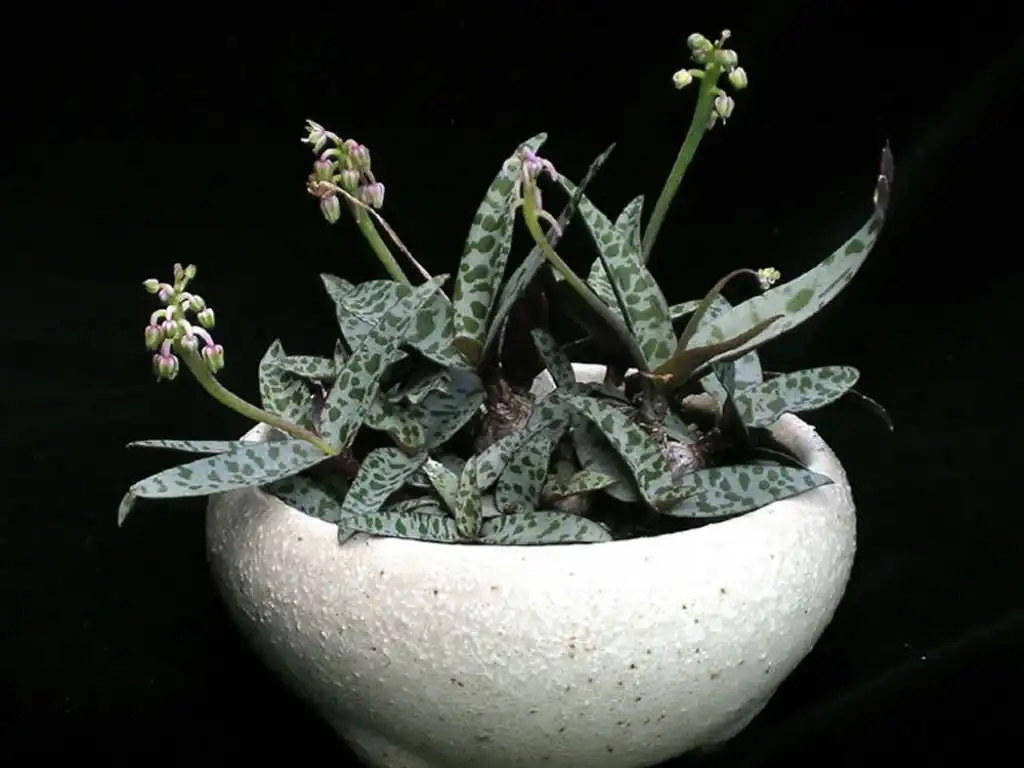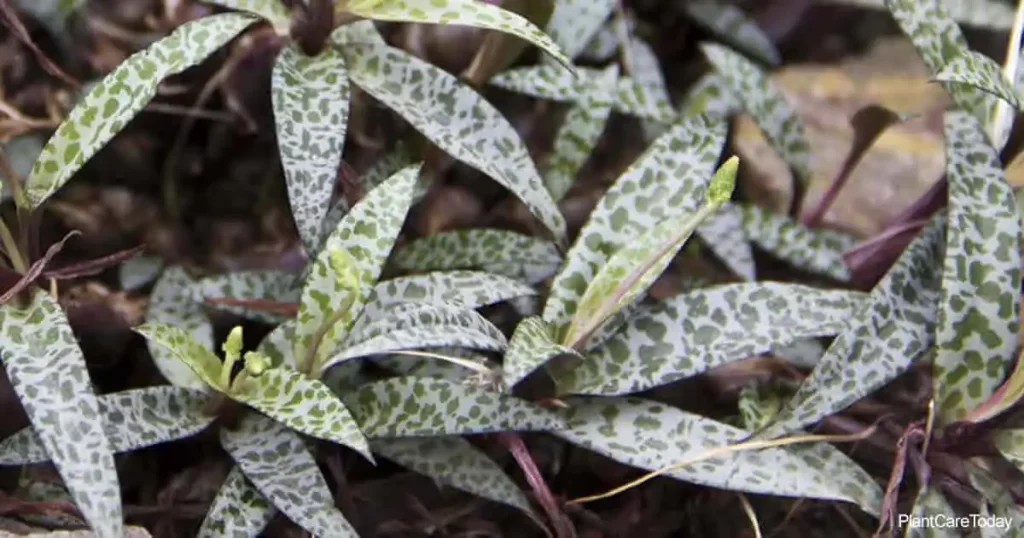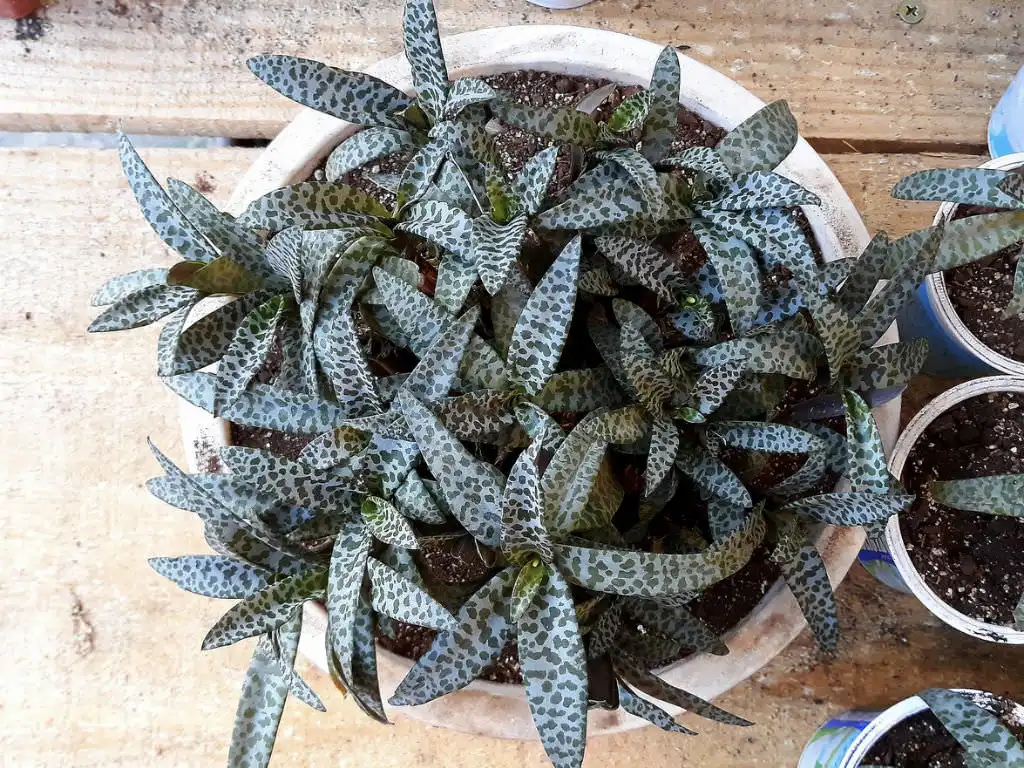Silver Squill isn’t just any house plant, it has unique properties and is easy to care about. It’s a perennial variety of the Hyacinthaceae family native to South Africa having silver-green, marking dark green leaves and It gives an aesthetic look. Silver squill is an amazing plant that is worth having in your garden.
Appearance and Growth:
The Silver squill plant is indeed a beautiful houseplant, the main allure being its captivating silver-colored foliage. The pointed leaves have a shiny layer of silver over them. They can be an elegant addition to any indoor space. The irregular patterns of dark green color on the leaves make a unique design. Because of this, it is quickly identifiable among houseplants.
The silver squill plant is the best option for compact spaces since it is small-sized. This plant normally grows and reaches a height between 6 to 8 inches. It is ideal for different sorts of containers, pots, or parts of any arrangement containing flowers or other type of plants.

Propagation:
It is quite easy to propagate the Silver Squill which makes it an ideal choice for a plant enthusiast wanting to expand their collection. New plants are Keep the cuttings or offsets in a warm and bright place until they are rooted well in the soil mix.
Benefits of Silver Squill:
Silver Squill is not only aesthetically pleasing, but it also provides some supplementation benefits to indoor environments. It acts as a filter to remove certain contaminants, thereby improving the air quality. It serves as an ideal option since it does not require high maintenance, and can be placed anywhere due to its small footprint.
Silver Squill Toxic to Dogs:
Despite being a houseplant that is much liked for its easy maintenance and vivid looks, there is an important concern. People who own pets should be cautious about the harmful effects this plant might have when ingested by their dogs. If dogs consume the silver squill, which is very attractive, they might be potentially harmed because it possesses harmful compounds. The article is divided into two main parts: the first part highlights potential risks, while the second part provides certain guidelines to mitigate those risks.
Toxic Components:
The presence of compounds in Silver Squill, called saponins is another example of similar compounds found in plants. If dogs eat or drink these substances then it will cause GI upset in them. Indications of the presence of harmful elements can show themselves through basic signs such as fatigue and nausea, alongside more critical issues.
The amount a dog ingests, his overall health and weight, and size can significantly change how the body reacts to toxins.

Preventive Measures:
As a responsible pet owner, there are several measures you can take to ensure the safety of your dog in the presence of Silver Squill:
Placement:
Silver squill plants should be placed in a spot that is out of your dog’s reach. Yes, that’s right you can put them in hanging planters where they cannot approach.
Education:
Be aware of how your pet might act when they have ingested a poisonous plant. In case you observe symptoms that are not normal or unusual behavior in your pet. Do not wait; rather, consult the veterinarian immediately.
Supervision:
In case you’re not sure if your dog will destroy the plants. It’s better to limit their access to them.
Training:
To keep your garden and plants safe from dogs, train them to not nibble the foliage at all. This kind of behavior is developed by positive reinforcement. This acts as a method that cannot be influenced by external resources and persists in the long term under stressful conditions.

How to Respond if Swallowed?
If you suspect that your dog has ingested Silver Squill or any other potentially toxic plant, it’s crucial to act promptly:
Contact your Veterinarian:
Notify your pet’s medical doctor right away and provide a complete set of the plant including its name, the exact amount consumed by the animal, and give away any symptoms that you notice.
Monitor your Dog:
Be vigilant of your dog and look for any unusual signs he might be giving. In case of severe symptoms or on the advice of your veterinarian, reach out to seek medical help for the pet.
Induce Vomiting:
Vomiting to your pet can cause an issue in certain situations so, therefore you should never attempt any remedies before contacting your vet.
Conclusion:
Pets can be harmed due to silver squill, although it provides grace and charm to your places. To take the best care of your pet and make sure that it is safe from toxic exposure, be ready for emergency actions, and know the symptoms of such exposures. One can make an environment where the pets and the plants both thrive well, by loving them equally and taking good care of their health.



